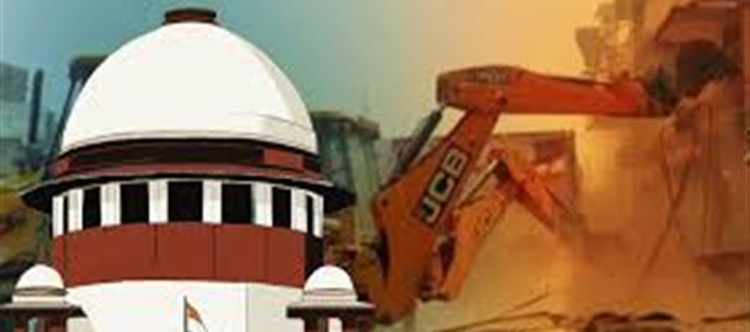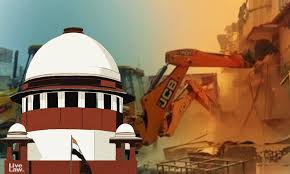
Supreme court overshadows bulldozer, how powerful compared to govts?
yogi government's bulldozer action is in full swing in Uttar Pradesh. In the state, the government's bulldozer is running on houses or illegal constructions for some reason or the other. But yesterday, the supreme court gave its verdict on the demolition of the house of a lawyer, a professor and three women petitioners in the year 2021. The court took a tough stand and said that this arbitrary process of demolishing the house is a violation of the rights of the citizens.
supreme court overshadows bulldozer
The court said that there is also something called Right to Shelter, it shakes our conscience. The court said that the proper procedure has not been followed during this period. The supreme court ordered the Prayagraj Development Authority to pay compensation of Rs 10 lakh each to the victims. In such a situation, the bulldozer action of the yogi government has overshadowed them. During this time, let us know how powerful is the supreme court compared to the government and what are its powers.
Powers of the supreme Court
One thing is clear here that the supreme court is the supreme court in India. It is more powerful than the government. The government's job is to make and implement the law, while the supreme court is the protector of the Constitution and it has the right to review the constitutionality of the law. The powers of the supreme court are as follows-
The supreme court not only interprets the Constitution but also protects it.
The first job of the supreme court is to review the laws made by the state assembly and the Parliament. If they are against the Constitution, the supreme court can also cancel them.
If the government violates or violates the fundamental rights of the people, the supreme court intervenes in it and protects the fundamental rights.
The supreme court is the highest court of the country. The final decision on all appeals is given here.
The supreme court also has the power to settle disputes between the central and state governments.
The supreme court also plays the role of an advisor. He can give advice to the President on any legal matter, but it is not binding.
The supreme court also has the right to punish anyone who commits contempt of court.
The supreme court also has the right to appoint retired judges of the supreme court or High Court.





 click and follow Indiaherald WhatsApp channel
click and follow Indiaherald WhatsApp channel